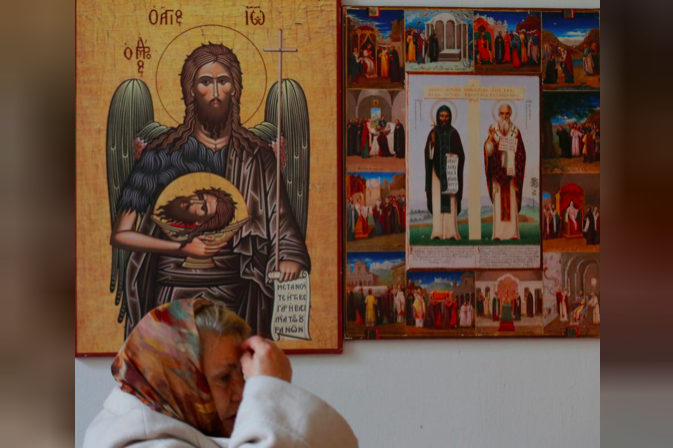Why is Hungary's PM Viktor Orbán granting cash to Russian Orthodox churches?

Twice a month a few dozen Russian orthodox believers gather in a small Catholic chapel whose foundations date back to the 11th century, their temporary place of worship as they do not have a church of their own in western Hungary.
These worshippers now have a good chance of having their own church built in the spa town of Heviz, after Prime Minister Viktor Orban granted 2.4 billion forints (6.81 million pounds) in the budget to the renovating and building of Russian Orthodox churches.
Channelling state money to the Hungarian branch of the Russian church, which had just 2,365 followers in the latest census in the mostly Catholic country of 10 million, was seen by political analysts and critics as a bid to win favour with President Vladimir Putin.
Orban signed off the decree and it was published on Feb. 1, the day before he received Putin in Budapest. It was their fourth meeting in two years and Putin was back on Aug. 28 for a judo event when they met again. On that day, Orban allocated an additional 313 million forints to the Russian Orthodox church.
Although the amounts are small, some analysts and critics see the bolstering of the Russian Orthodox Church with state cash as significant in the context of Russian-Hungarian relations.
'This move is on the one hand a gesture towards Vladimir Putin, and the Russians, a small community living here in Hungary, but at the same time it really shows the ... influence of Russia on Hungary,' said Peter Kreko, director of think-tank Political Capital.
Hungary's alignment to Russia is unsettling to fellow European Union member states where Russia's alleged interference is taken with such alarm that several countries have moved to set up agencies to counter it.
Inside the European Union, Hungary promotes scrapping economic sanctions imposed after Russia's annexation of Crimea in 2014, saying it hurts trade.
Trade ties between Russia and Hungary include a gas supply pact with Gazprom and a deal for Russia to finance and build a nuclear power plant. Construction is due to start next year.
In February, Orban said Hungary wanted 'open and transparent' relations with Russia.

'On the western half of the continent, there is a strong anti-Russian sentiment ... and anti-Russian politics has come into fashion,' Orban said at a joint news conference with Putin. 'We had to defend our economic relations in this environment.'
When asked about the church grant, Foreign Minister Peter Szijjarto told Reuters: 'We work together with all the churches very closely.'
The 2.4-billion-forint grant to Russian Orthodox churches compares to around 11 billion for similar investments and programmes in other churches also in the 2017 budget.
Andras Racz, an associate professor at Pazmany Peter Catholic University, said that both sides wanted different dividends from the relationship.
'The cooperation is pragmatic from both sides, just they want different things: the Hungarian side wants primarily economic benefits ... while the Russian side has primarily political and strategic motivations, which of course includes some long-term strategic economic position building,' he said.
After the Soviet Union collapsed in 1991, the Russian Orthodox church emerged from decades of oppression to find post-communist politicians ready to help re-establish its role.
Religion helped fill the ideological vacuum left by the failure of Marxism, while the church, an integral part of Russian history and culture, fitted well into the new nationalism.
The church has developed into a thriving institution that works closely with the Kremlin to promote common interests.
With backing from oligarchs, it has built or restored tens of thousands of churches, mostly at home but also in over 60 countries including distant locations such as Havana, Caracas, Bangkok and Pyongyang.
As the Russian Orthodox believers left the small, Christian chapel in Zalavar, with the smell of incense lingering, priests removed Russian icons from the walls.
Some Russian tourists were happy to hear that a church would be built in the spa town of Heviz, where thousands of Russians arrive on charter flights to take the waters of one of the world's biggest thermal lakes, landing at a nearby airport at a former Soviet army base.
'I think this is not only a matter of religion, but also our history ... so this is good, this is appropriate,' Aleksander Kulchitskii, on holiday from the Russian city of Ryazan, said.
Some Hungarians, however, were less convinced.
Klara Kispal, a pensioner on holiday in Heviz, said she agreed with Orban's anti-migration policies but she could not support paying for a Russian Orthodox church in the town.
'I don't think this is a good move... I am religious, Roman Catholic, and (the government) should promote our religion not a foreign religion,' she said.











